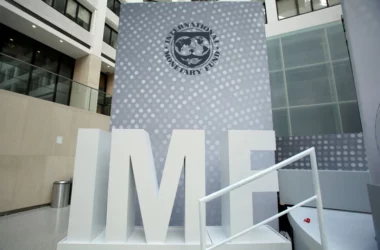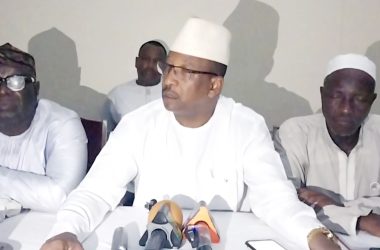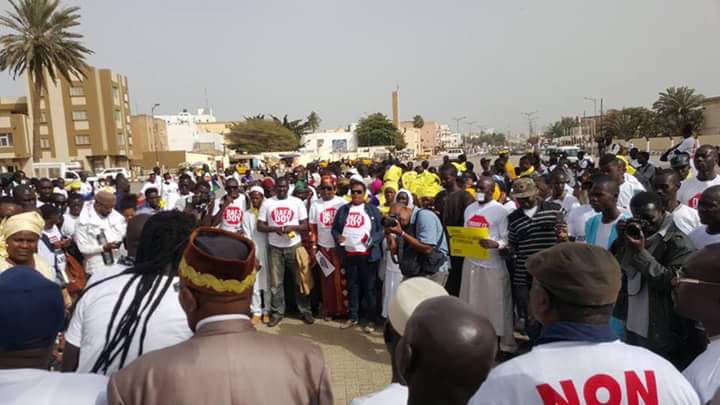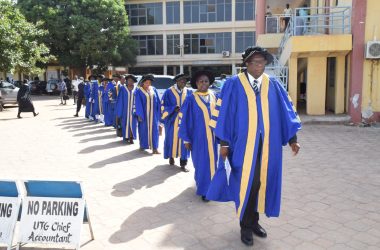
Authorities in the Gambia have issued warning against unauthorised street protest in the West African country.
The announcement came after the police came across an audio recording about a planned demonstration on social media.
According to the head of the police force, Mamour Jobe, unauthorised street protest contravenes the principles of democracy and the will use all means reasonable to ensure that the peace and tranquility of the country not is compromised in all forms.
“There is nowhere in the world where a person or group of persons occupy the streets without the consent of the relevant authorities whose presence will be to protect lives and properties of everyone,” the police boss said.
He added that while the Gambia is a democratic society that protects the fundamental rights of its people, such rights go with certain responsibilities.
MrJobe urged people wanting to hold street protests to comply with the law in order to be protected by the law.
Although the Gambia’s constitution guarantees the right to peaceful assembly, the country’s Public Order Act prohibits any assembly without police permit.
In the past years police have used the law to ban anti-government protests and opposition sympathisers.















There is a lot of anger and frustrations, especially amongst the youths, around the mass deportations of Gambians and I think this government has not handled the issue properly. The huge number of Gambians ready for deportations from abroad, as cited in some quarters, can be a serious challenge to our stability if these are all sent back.
It was good to read President Barrow’s statement to the German delegations about taking our national situation into consideration when these requests to deport our citizens are made, but its come too little, too late. That position, if it is a position at all, should have been taken before a single individual was deported. The government could have agreed an annual quota plan of deportees and sought guarantees that these will be helped to fully settle down before the next group is received. Meanwhile, whatever foreign aid was earmarked for Gambia from such host countries could be used to educate or provide skills training to the youths, to prepare them for their life back home.
We should help Europeans and others, where we cannot secure any alternative arrangements with the host authorities, to remove undocumented Gambian migrants and those who break their residence conditions, but we must be mindful that we don’t do so to jeopardise our own security and stability.
Government, NGOs and society must engage deportees and help them to see that being deported is not the end of one’s life. It’s just a setback that one can overcome, with purpose, focus and determination to succeed, but that can only occur in a stable Gambia; not a chaotic one. That is why the aggrieved must follow the right process(es) if they want to exercise their democratic rights to demonstrate.
All temptations to engage in unlawful activities and congregations should be resisted and those media houses that are inciting lawlessness should look at themselves in the mirror.